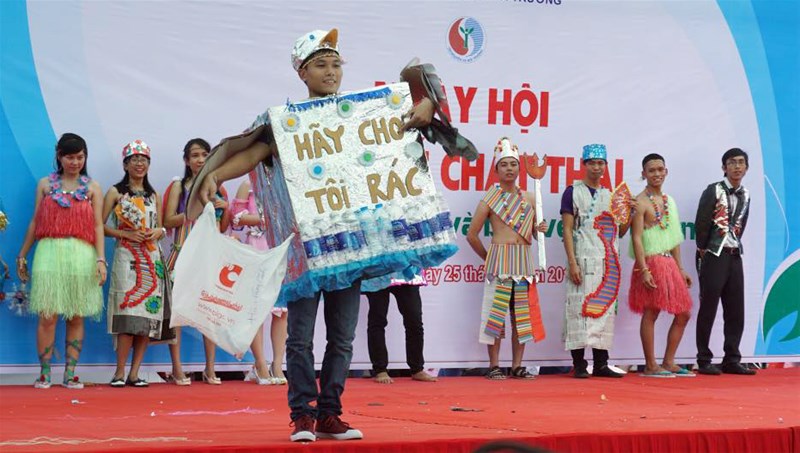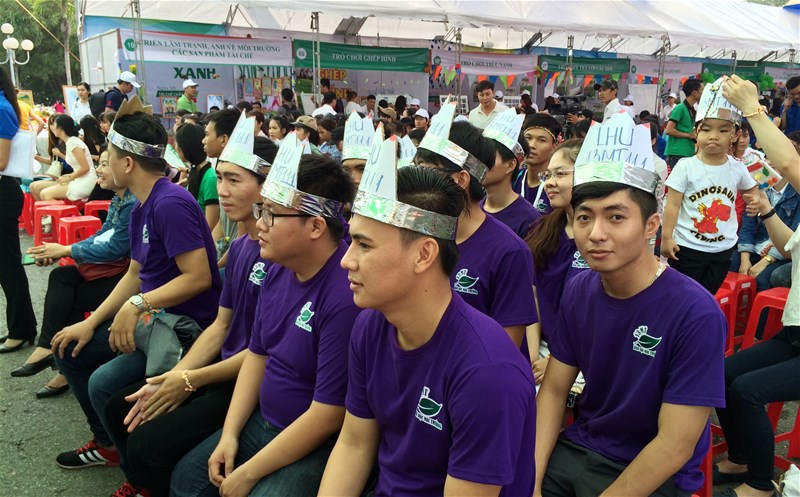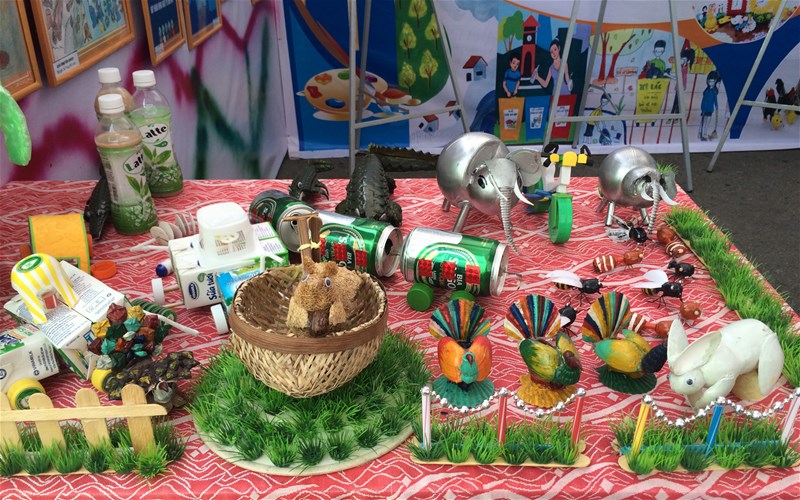Engagement
CONTENTS
Join Environmental Students in “Recycling - Saving and Protecting the Environment”
Participating in the 2016 Waste Recycling Festival organized by the Dong Nai Department of Natural Resources and Environment in collaboration with relevant units, the Youth Union - Association of the Faculty of Chemical and Environmental Engineering at Lac Hong University (FCEE) made a lasting impression on the Organizing Committee (OC) and other participants. This was achieved through two recycled fashion collections and recycled products, all creatively designed and executed by the students. With the theme “Recycling - Saving and Protecting the Environment,” the festival took place at the Dong Nai Provincial Sports Center, attracting a large number of students from across the province.

At the festival, FCEE presented two fashion collections with the themes “The Beauty of Revival” and “Colors of Life.” These themes received high praise from the OC for their communication efforts and creative concepts, effectively conveying the message of “recycling, saving, and protecting the environment.”

Additionally, the festival featured activities such as: “One’s Trash, Another’s Treasure” – exchanging used items, “3R Corner” – a workshop teaching how to make useful items from waste materials, and the “Waste Revitalization” exhibition, showcasing entries from the “New Life from Waste” contest by students. In this activity, students from the 13MT class, specializing in Environmental Engineering, brought self-made recycled products like phone pouches made from animal feed bags, backpacks from discarded sacks, hair ties, bracelets woven from nylon bags, hats made from cut and glued cardboard, and various personal items repurposed from beer cans, etc.
With the goal of raising community awareness about integrated solid waste management and contributing to the implementation of the National Strategy for Integrated Solid Waste Management by 2025, with a vision to 2050.

The festival featured numerous meaningful and educational activities, such as exhibitions on green technologies, services, and eco-friendly products, along with environmental protection activities. Other activities included the collection of hazardous household waste with corresponding rewards, and the collection of recyclable materials like bottles, cans, milk cartons, and plastic bags. These efforts contributed to strengthening solid waste management, especially the collection, transport, and treatment of hazardous and regular waste generated by households. Simultaneously, the event promoted awareness about recycling, aiming to increase community and corporate interest in adopting waste reduction, reuse, and recycling solutions in daily life as well as in production processes, to minimize pollution and make efficient use of resources.

